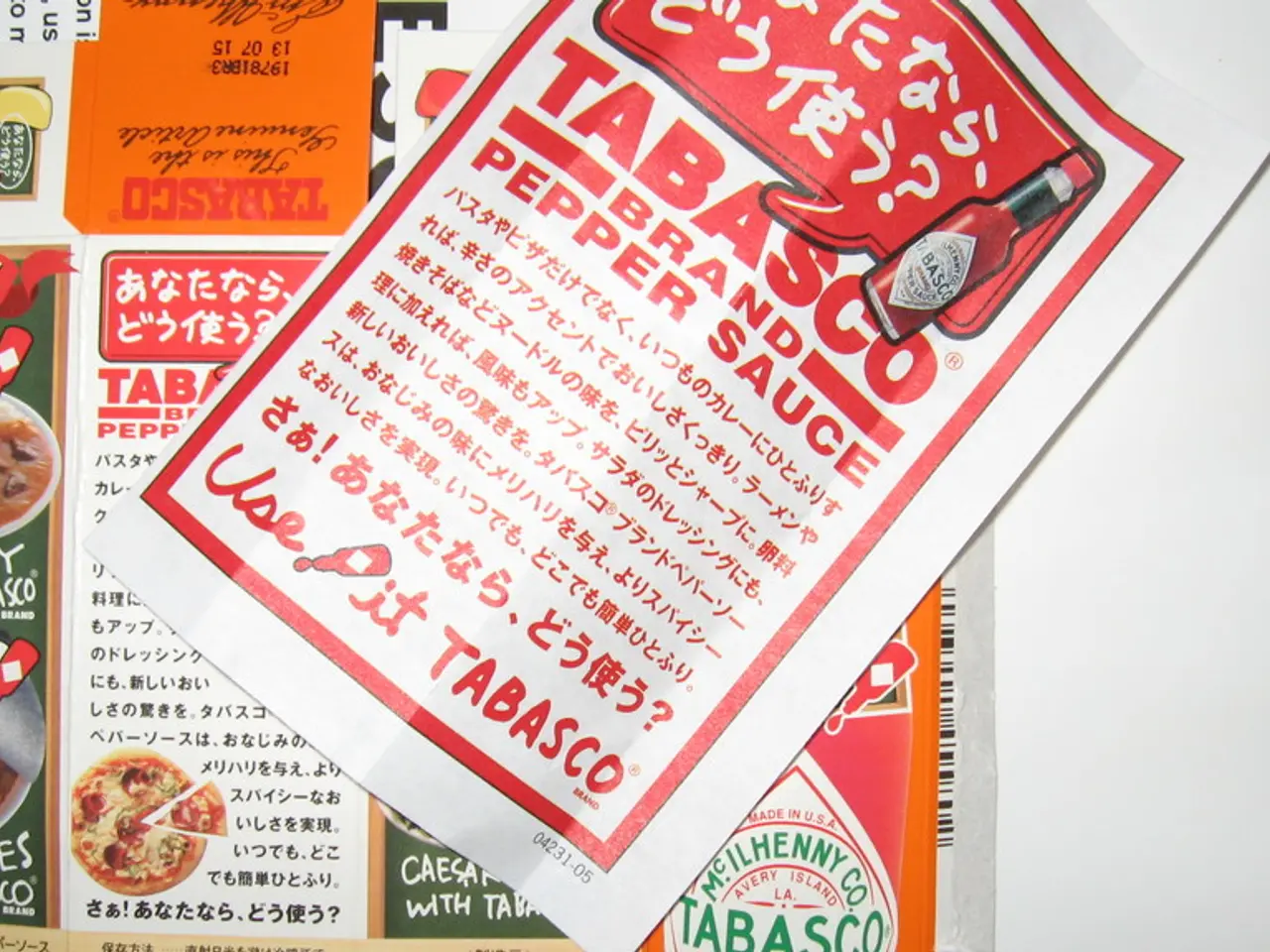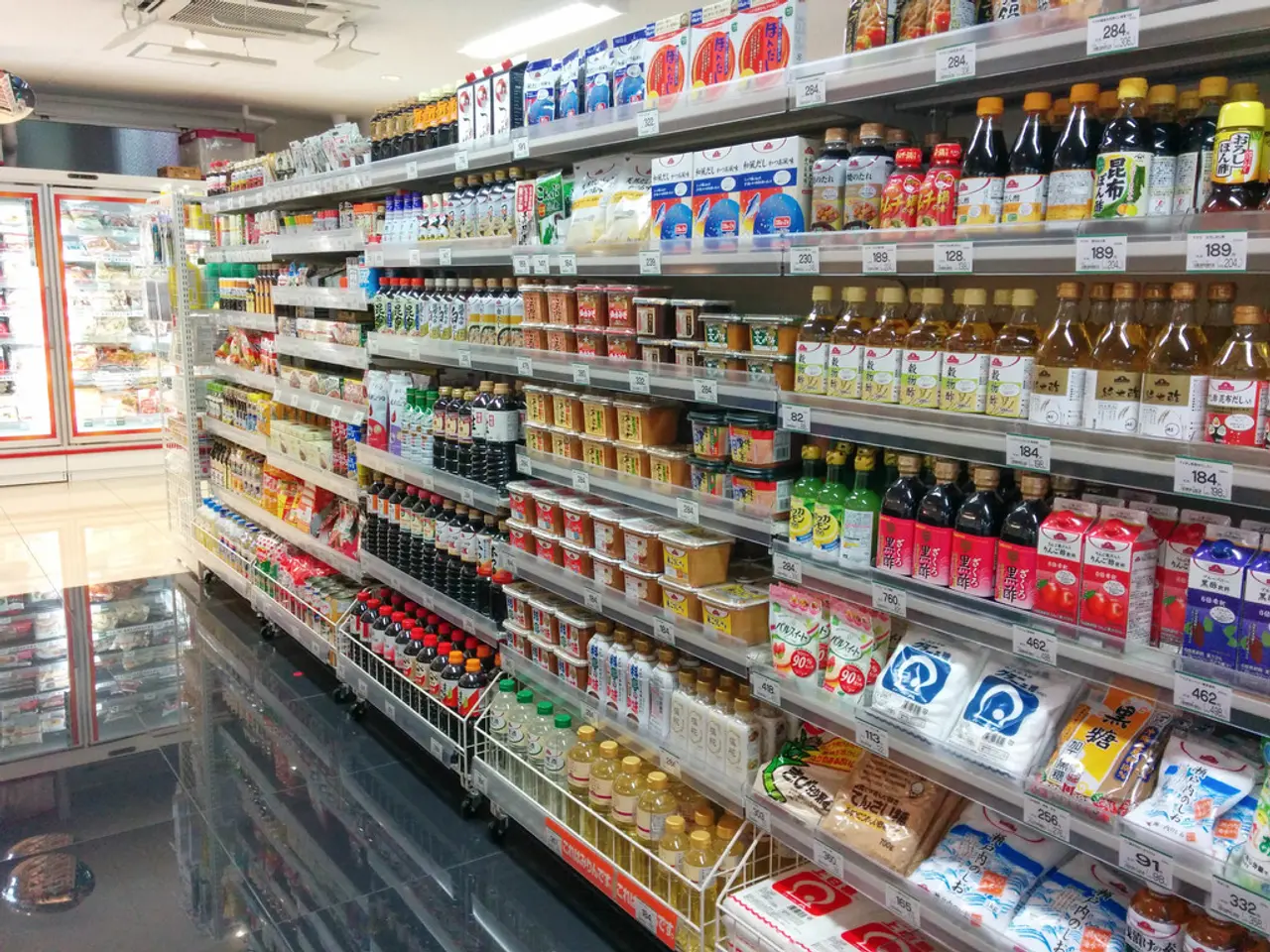German Exports Face Ominous Uncertainty due to Trump's Tariffs - Increased Trump tariffs pose a threat to German exports
The chemical industry in Germany has seen a significant deterioration in July, according to a survey by the Munich-based Ifo Institute [1]. This follows an unexpected decline in production in June, as well as fewer new orders being placed in that month [2].
The U.S. President Donald Trump's aggressive trade policy is negatively impacting Germany's exporters, particularly small and medium-sized enterprises (SMEs). The tariff agreement reached between the U.S. and European Union imposes a 15% tariff rate on EU products, including autos, increasing costs for German exporters [4].
The trade tensions and tariff hikes are disrupting supply chains for complex manufacturing, as missing components (often imported from Germany) can halt production in U.S. plants. This disruption affects companies with integrated transatlantic production, including SMEs reliant on niche strengths in the German industrial sector [4][5].
Many SMEs face challenges due to the tariff environment and the resulting uncertainties. The German Chamber of Commerce and Industry reported that 58% of German companies foresee new difficulties from the tariff agreement, with 74% of those directly engaged with the U.S. market experiencing negative impacts [2][5].
ING chief economist Carsten Brzeski described the industry as "still stuck in a very long trough" [6]. The first half of the year saw noticeable declines for German manufacturers on the particularly important markets of the U.S. (down 3.1 percent) and China (down 13.5 percent) [3].
The Federal Ministry of Economics expects no impetus for a sustainable recovery in industrial production at the beginning of the third quarter due to US tariffs [7]. Production declines were particularly notable in the machinery, pharmaceutical, and food industries in June [2].
However, there was an unexpected strong rise in overall exports in June, as German exports to the European Union and China more than made up for the weak U.S. business [8]. Goods worth 130.5 billion euros were delivered abroad in June, an increase of 0.8 percent compared to the previous month and 2.4 percent more than a year ago [9].
Despite the overall increase, German exports to the U.S. fell by 8.4 percent after seasonal and calendar adjustment compared to June 2024 [9]. The deal between the EU Commission and the US, which reduced the tariff rate, is controversial, with critics accusing Commission President Ursula von der Leyen of failing to protect the European market from US competition by imposing equivalent tariffs in return [10].
The "erratic trade policy of the U.S." is heavily impacting foreign trade, according to Dirk Jandura, president of the Federal Association of Wholesale, Foreign Trade, and Services (BGA) [11]. As of Thursday morning, most EU imports to the US are subject to tariffs of 15 percent, with US President Trump having previously threatened a rate of 30 percent [11].
Amidst these challenges, many companies in the chemical industry are reportedly planning further job cuts due to the continued weak industrial cycle [12]. The industry remains in a long and uncertain trough, with the impact of Trump's trade policy continuing to be felt.
References: [1] https://www.bloombergquint.com/onweb/trump-s-trade-policy-is-hurting-german-exports-survey-shows [2] https://www.bloombergquint.com/global-economics/german-industrial-output-falls-unexpectedly-in-june [3] https://www.bloombergquint.com/onweb/german-exports-suffer-as-trump-s-tariffs-hit-us-business [4] https://www.bloombergquint.com/onweb/german-exports-suffer-as-trump-s-tariffs-hit-us-business [5] https://www.bloombergquint.com/onweb/german-exports-suffer-as-trump-s-tariffs-hit-us-business [6] https://www.bloombergquint.com/onweb/german-industrial-output-falls-unexpectedly-in-june [7] https://www.bloombergquint.com/onweb/german-industrial-output-falls-unexpectedly-in-june [8] https://www.bloombergquint.com/onweb/german-exports-suffer-as-trump-s-tariffs-hit-us-business [9] https://www.bloombergquint.com/onweb/german-exports-suffer-as-trump-s-tariffs-hit-us-business [10] https://www.bloombergquint.com/onweb/german-exports-suffer-as-trump-s-tariffs-hit-us-business [11] https://www.bloombergquint.com/onweb/german-industrial-output-falls-unexpectedly-in-june [12] https://www.bloombergquint.com/onweb/german-industrial-output-falls-unexpectedly-in-june
- The U.S. President's aggressive trade policy affects employment policies within the German chemical industry, particularly SMEs, as they face increased costs due to the 15% tariff rate on EU products, leading to potential job cuts.
- The Finance Ministry in Germany anticipates that the continued impact of trade tensions and tariff hikes on the industrial sector, particularly in industries like machinery, pharmaceuticals, and food, could further erode employment policies within the industry.




